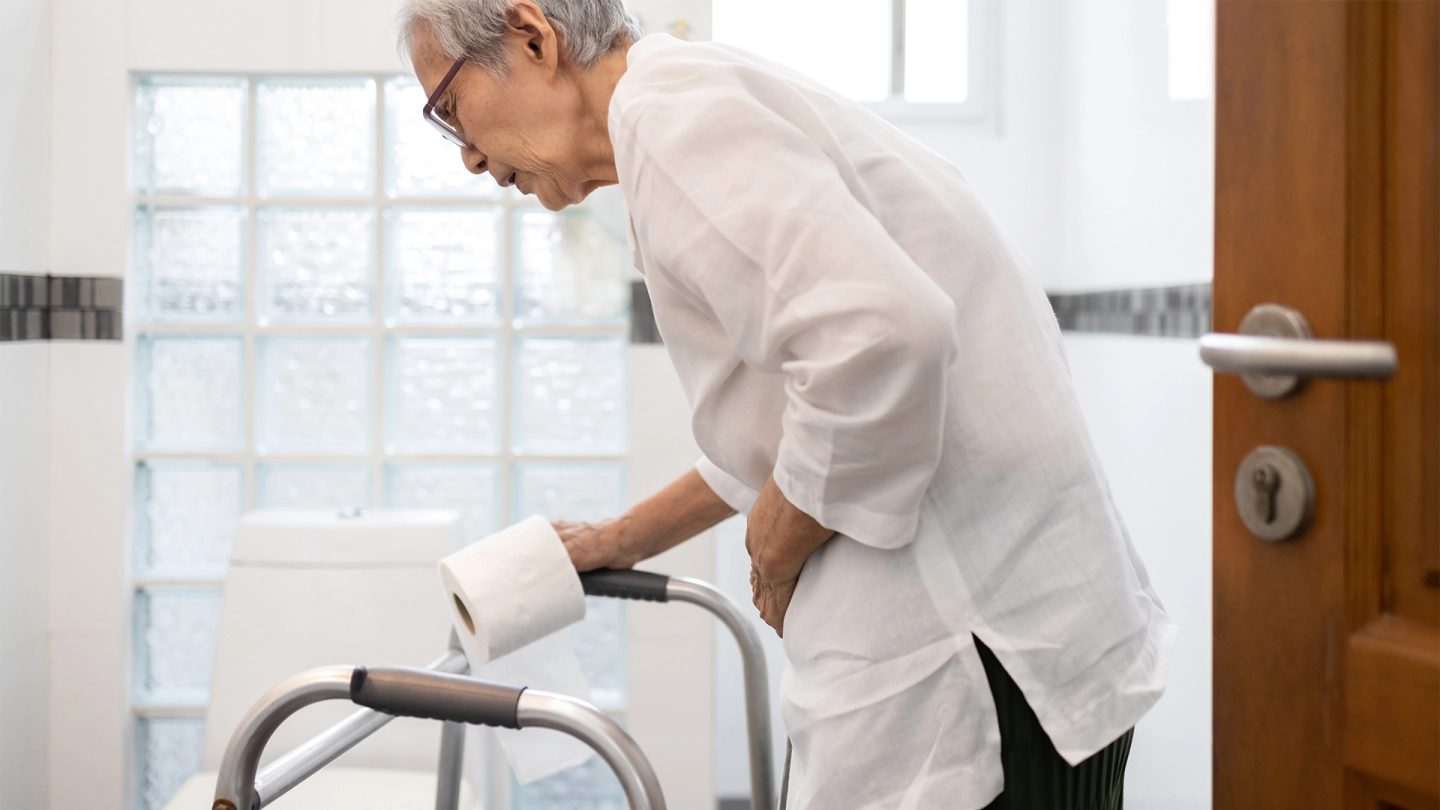Conditions Ulcerative colitis
ICD codes: K51.0 What are ICD codes?
Ulcerative colitis is a chronic inflammation of the colon. Symptom-free phases typically alternate with symptomatic phases. An acute episode is characterized, for example, by severe pain, diarrhea and weight loss.
At a glance
- Ulcerative colitis is a chronic inflammation of the intestinal mucosa.
- It can lead to diarrhea with blood or mucus, pain in the left side of the abdomen and high temperature.
- The disease often causes weight loss.
- In ulcerative colitis phases with sometimes very severe symptoms alternate with periods without symptoms.
- During an acute phase the symptoms can be so distressing that they stop people from living a normal life.
- Only a very small number of people with ulcerative colitis constantly experience symptoms.
Note: The information in this article cannot and should not replace a medical consultation and must not be used for self-diagnosis or treatment.

What is ulcerative colitis?
Ulcerative colitis is a chronic inflammation of the lining of the colon. Symptom-free phases typically alternate with periods when pain in the left abdomen, diarrhea and weight loss can be so severe that they stop people from living a normal life. Sometimes they may even need hospital treatment.
Unlike Crohn’s disease, which affects the whole intestine, ulcerative colitis only involves inflammation of the colon.
Medical practitioners refer to ulcerative colitis that is restricted to the last section of the colon as proctitis.
Around 150,000 people in Germany have ulcerative colitis.
What are the signs of ulcerative colitis?
A number of symptoms may occur during acute flare-ups. Some are relatively mild or rarely occur but others are recurrent:
- bloody diarrhea
- frequent bowel movement
- abdominal pain in the form of cramps
- high temperature
- swelling and pain in hips and knees
- red, sore eyes
- rash
- ulcers or wounds in the mouth
- weight loss
What causes ulcerative colitis?
It is not yet known what causes ulcerative colitis. Symptoms are caused by an inflammation of the intestinal mucosa. The body’s immune system attacks its own mucosa.
What are the risk factors for ulcerative colitis?
People whose close family members have the disease have a greater risk of also developing it. It is not clear what can trigger an acute flare-up. Stress, environmental factors and other diseases are believed to be potential causes of flare-ups.
How does ulcerative colitis develop?
Most people develop the disease as schoolchildren or students and then suffer from it for the rest of their lives.
Only a very small number of people with the disease have a permanently inflamed colon. It typically involves recurrent flare-ups that alternate with phases of no or mild symptoms. The inflammation also clears up during these dormant phases.
Persistent symptoms can cause malnutrition and can sometimes lead to life-threatening complications. People with ulcerative colitis also have a permanently increased risk of bowel cancer. Doctors advise patients to have regular colonoscopies to identify it early on.
How is ulcerative colitis diagnosed?
Inflammation of the intestinal mucosa may have a range of causes. Various examinations may be considered to differentiate between other chronic conditions such as Crohn’s disease, acute infection or food intolerances and ulcerative colitis.
First, the doctor asks the patient, for example:
- what type of symptoms they have and when they started
- whether any foods are not tolerated
- what vaccinations they have had
- whether they smoke
- whether any family members have ulcerative colitis
In most cases doctors then suggest an ultrasound scan, blood tests and a colonoscopy, where a tissue sample is taken from the intestinal wall.
The colonoscopy may be repeated after a few months.
How is ulcerative colitis treated?
Anti-inflammatory medication is used to treat acute flare-ups. The severity of the flare-up and the area of the colon affected will determine which active substances are selected and how they are combined.
5-aminosalicylic acid is often used at the start of treatment. Medications containing cortisone are also used.
Other medication may be useful depending on how effective this treatment is and how it is tolerated. If the usual medication stops working or the side effects are too severe, treatment may be switched to biological medicines (biologics). These include, for example, TNF-alfa inhibitors, which are designed to inhibit the immune system.
Surgery may be required if medication therapy is no longer working or severe complications occur.
Would you like to know more about “biologics”? For useful information, visit gesundheitsinformation.de.
Where else can I get information from?
There are lots of services offering support for people with ulcerative colitis in Germany. These include self-help groups and advice centers. These local facilities are organized in various ways. A list of points of contact can help with finding and using the right service.
You can find suitable self-help offers via a database on the National Contact and Information Point For Encouraging and Supporting Self-Help Groups (NAKOS) website.
- Andersson P, Söderholm JD. Surgery in ulcerative colitis: indication and timing. Dig Dis. 2009;27(3):335-40. doi: 10.1159/000228570. Epub 2009 Sep 24. PMID: 19786761.
- Deutsche Gesellschaft für Gastroenterologie, Verdauungs- und Stoffwechselkrankheiten e.V. (DGVS). Colitis ulcerosa – Living Guideline. S3-Leitlinie. 08.2020. AWMF-Registernummer 021-009.
- Murray A et al. Oral 5‐aminosalicylic acid for induction of remission in ulcerative colitis. Cochrane Library 2016. Aufgerufen am 10.02.2021.
- UpToDate (Internet). Medical management of low-risk adult patients with mild to moderate ulverative colitis. Wolters Kluwer 2021. Aufgerufen am 10.02.2021.
In cooperation with the Institute for Quality and Efficiency in Health Care (Institut für Qualität und Wirtschaftlichkeit im Gesundheitswesen) (IQWiG).
As at:





